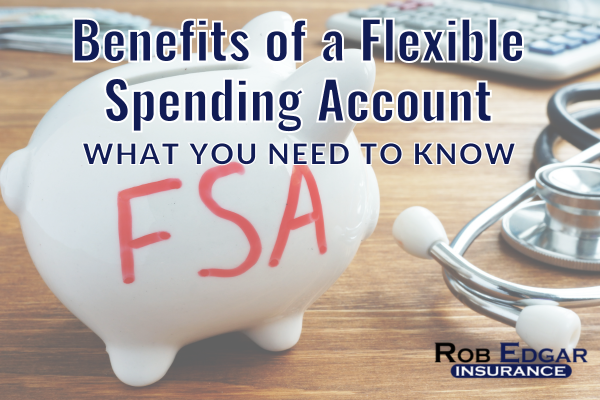A Flexible Spending Account (FSA) is an employer-sponsored benefit plan that allows employees to set aside pre-tax dollars from their paychecks to pay for certain eligible expenses. Before deciding if one is right for you, let’s look at the benefits of a Flexible Spending Account.
An FSA aims to help employees save money on out-of-pocket healthcare expenses and dependent care expenses.
Flexible Spending Account 101
There are two types of FSAs: healthcare FSAs and dependent care FSAs.
Healthcare FSA: This type allows employees to set aside pre-tax dollars to pay for eligible healthcare expenses not covered by their health insurance plan. Eligible expenses may include copays, deductibles, prescriptions, and certain medical supplies.
Dependent Care FSA: This type allows employees to set aside pre-tax dollars to pay for eligible dependent care expenses, such as daycare or after-school care for children or elderly dependent care.
An employee’s contribution to an FSA is deducted from their paycheck before taxes are applied. However, the funds in an FSA must be used within the plan year, or they will be forfeited, so it’s important to carefully estimate expenses before enrolling.
Employers may also offer a rollover option or a grace period that allows employees to use their FSA funds beyond the plan year. However, employers are not required to provide these options.
What are the Benefits of Having a Flexible Spending Account?
Tax savings: The money that an employee contributes to their FSA is deducted from their paycheck before taxes are applied. This means employees save money on their taxes by reducing their taxable income.
Reduced out-of-pocket expenses: FSAs can help employees save on out-of-pocket healthcare and dependent care expenses. Employees can lower their out-of-pocket costs by using pre-tax dollars to pay for eligible expenses.
Convenient payment method: Employees with an FSA can use a debit card provided by their employer to pay for eligible expenses directly from their FSA. This eliminates the need to pay out of pocket and then submit receipts for reimbursement.
More control over healthcare spending: FSAs allow employees to plan and budget for healthcare expenses by setting aside pre-tax dollars for medical expenses. This gives employees more control over their healthcare spending and can help them avoid unexpected medical bills.
Increased savings: Since FSA contributions are made with pre-tax dollars, employees may be able to contribute more to their FSA than they could afford with after-tax dollars. This can increase their savings on eligible expenses.
Who is Eligible for a Flexible Spending Account?
To be eligible for an FSA, you must be enrolled in an employer-sponsored healthcare plan that offers an FSA option. Unfortunately, not all employers offer FSA plans, so you should check with your employer to see if this is an option for you.
Who is Not Eligible for a Flexible Spending Account?
Some employees are not eligible to enroll in an FSA. For example, though exceptions exist, self-employed employees and shareholders who own 2% or more in an S-Corp, LLC, LLP, PC, sole proprietorship, or partnerships are generally ineligible for FSAs. In addition, employees with Health Savings Accounts should not enroll in an FSA.
Are They Worth It? Talk With a Savannah Independent Insurance Agent
FSAs can be worth it for some people, depending on their circumstances and healthcare needs. Here are some factors to consider when deciding if an FSA is right for you:
Your expected healthcare expenses: If you anticipate significant out-of-pocket healthcare expenses in the coming year, an FSA can help you save money by setting aside pre-tax dollars to pay for those expenses.
Your tax bracket: If you’re in a higher tax bracket, using an FSA can help you save money on taxes by allowing you to use pre-tax dollars to pay for healthcare expenses.
Your employer’s contribution: Some employers offer matching contributions to FSAs, which can make them more valuable.
Your ability to accurately predict your expenses: FSAs require estimating your healthcare expenses for the year in advance. If you understand your medical needs well, an FSA can help you budget accordingly.
If you have predictable healthcare expenses and are in a higher tax bracket, an FSA can be an excellent way to save money on taxes and healthcare costs. However, it’s essential to carefully consider your circumstances and healthcare needs before deciding if an FSA is worth it for you. Contact me today to discuss your options, and I can help you determine what is best for your situation.

